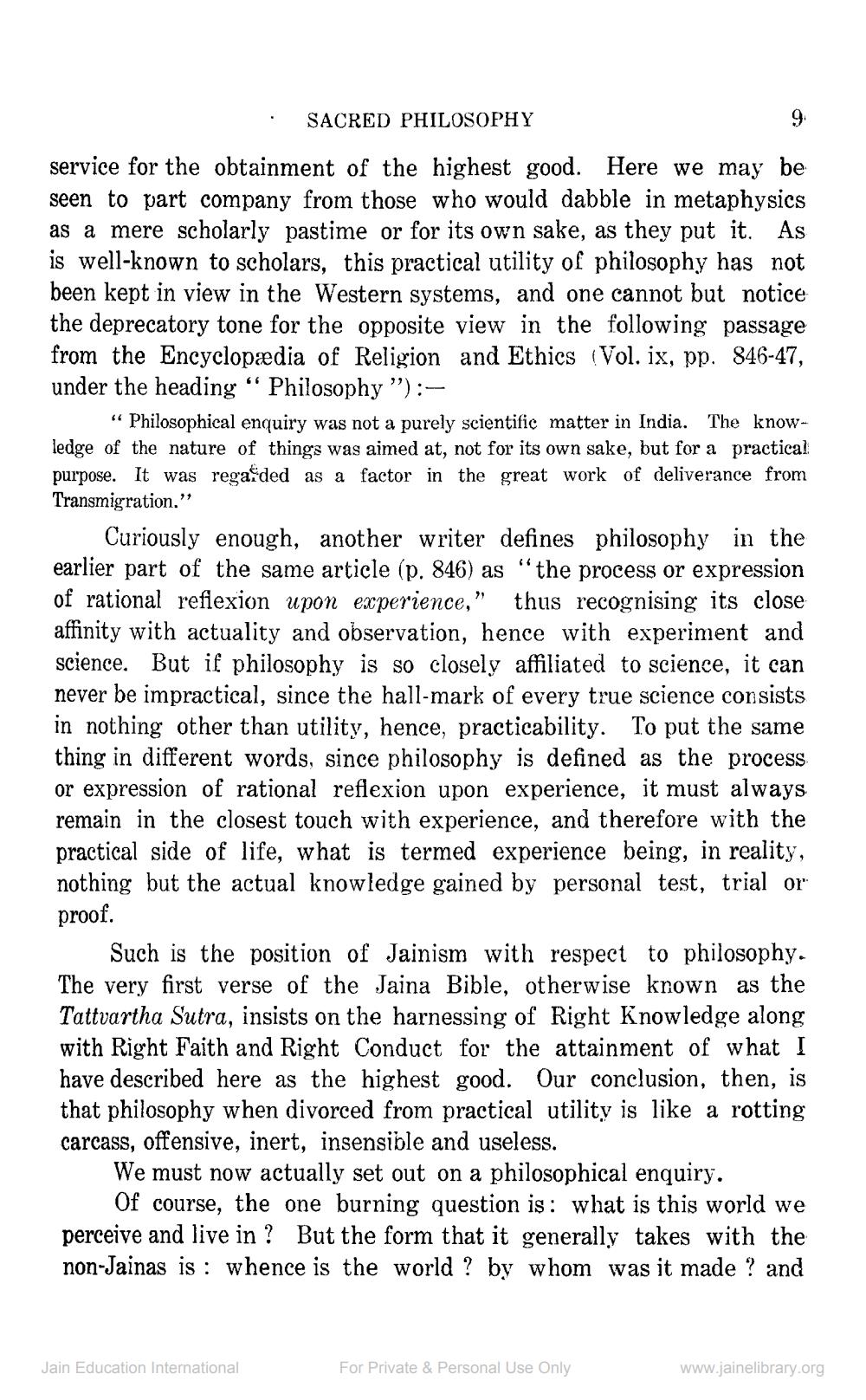________________
SACRED PHILOSOPHY
service for the obtainment of the highest good. Here we may be seen to part company from those who would dabble in metaphysics as a mere scholarly pastime or for its own sake, as they put it. As is well-known to scholars, this practical utility of philosophy has not been kept in view in the Western systems, and one cannot but notice the deprecatory tone for the opposite view in the following passage from the Encyclopædia of Religion and Ethics (Vol. ix, pp. 846-47, under the heading "Philosophy"):
"
Philosophical enquiry was not a purely scientific matter in India. The knowledge of the nature of things was aimed at, not for its own sake, but for a practical purpose. It was regarded as a factor in the great work of deliverance from Transmigration."
9.
Curiously enough, another writer defines philosophy in the earlier part of the same article (p. 846) as "the process or expression of rational reflexion upon experience," thus recognising its close affinity with actuality and observation, hence with experiment and science. But if philosophy is so closely affiliated to science, it can never be impractical, since the hall-mark of every true science consists in nothing other than utility, hence, practicability. To put the same thing in different words, since philosophy is defined as the process or expression of rational reflexion upon experience, it must always remain in the closest touch with experience, and therefore with the practical side of life, what is termed experience being, in reality, nothing but the actual knowledge gained by personal test, trial or proof.
Such is the position of Jainism with respect to philosophy. The very first verse of the Jaina Bible, otherwise known as the Tattvartha Sutra, insists on the harnessing of Right Knowledge along with Right Faith and Right Conduct for the attainment of what I have described here as the highest good. Our conclusion, then, is that philosophy when divorced from practical utility is like a rotting carcass, offensive, inert, insensible and useless.
We must now actually set out on a philosophical enquiry.
Of course, the one burning question is: what is this world we perceive and live in? But the form that it generally takes with the non-Jainas is whence is the world? by whom was it made? and
:
Jain Education International
For Private & Personal Use Only
www.jainelibrary.org




